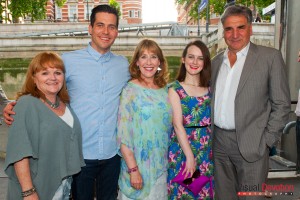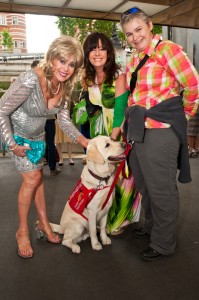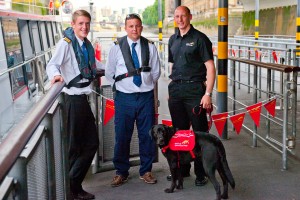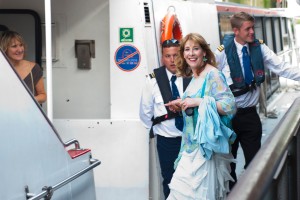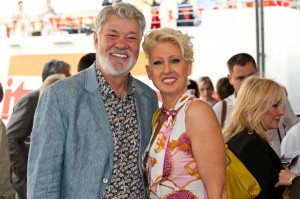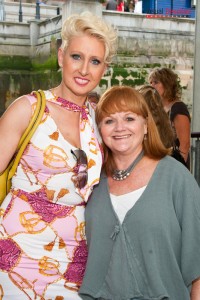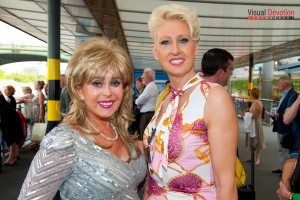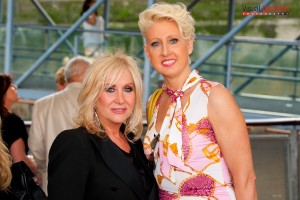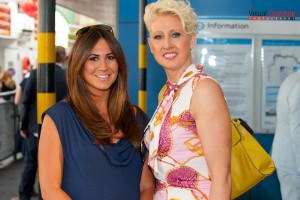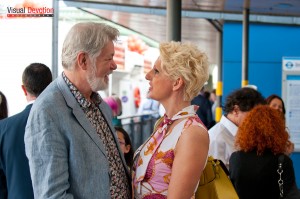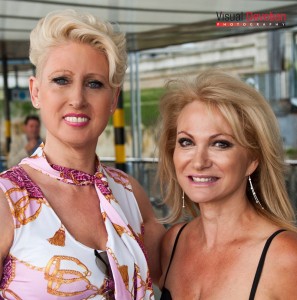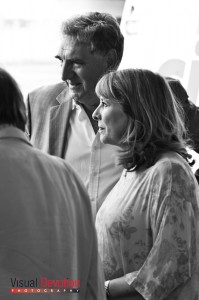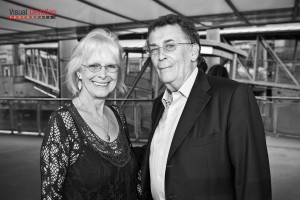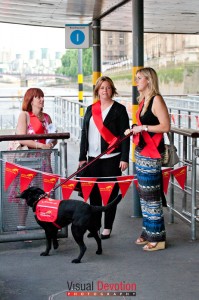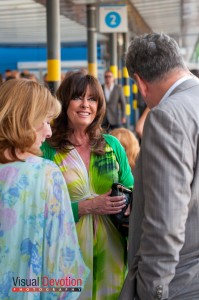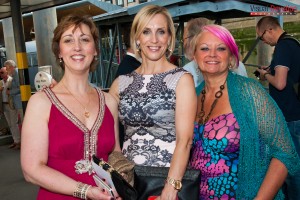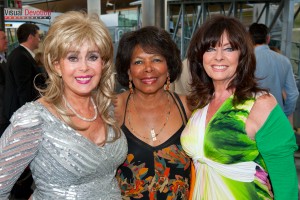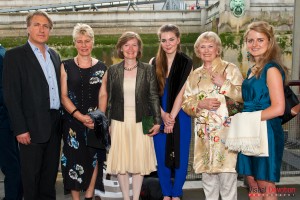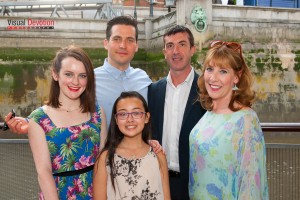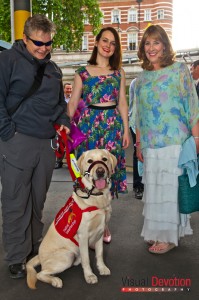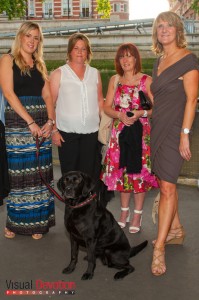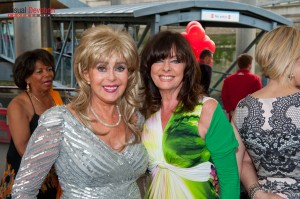Black Mirror : White Christmas is on C4 at 9pm on 16th December.
For a generation of Mad Men fans, actor Jon Hamm will forever be known as Don Draper. But this Christmas, they will see him in a new role – starring in a feature-length special of Charlie Brooker’s gloriously dark comedy drama Black Mirror. Here, Jon reveals his love for both Black Mirror and cricket, and recalls a life when he had just $150 dollars to his name.
You’re in the feature-length Black Mirror Christmas special. You must get offered so many roles – what was it about this relatively modest British drama that made you want to do it?
Well, let me disabuse you of the notion that I get offered so many roles. The jobs that are out there are scarce, and as with almost every actor, it can be hard to get good stuff. I had been a fan of Black Mirror, and Charlie Brooker, because I have a strange predilection for offbeat British things, and this was no exception. It came about in this very odd way, with me asking my agent if I could meet Mr Brooker. I didn’t know he was even working on a third series or a Christmas special or anything, it was simply that I really liked his work and really wanted to meet the guy.
So how had you encountered Black Mirror before?
Oddly enough, here in the States there is a channel on Direct TV called The Audience Network. They have some original programming and some stuff that they purchase from other sources. And Black Mirror was one of those acquisitions. My friend Bill Hader, of Saturday Night Live fame, told me I had to watch this show. So I watched it, and I thought it was really, really good. And that’s how it all came together. So I got a meeting with Charlie, and about three days later I flew back to LA, and a couple of days after that I got an email from him, and he said he’d really enjoyed our meeting and he had this character who was meant to be English but didn’t necessarily have to be, and why didn’t we have a go at putting me in this thing? And I said “Why not indeed?” It was a totally serendipitous situation. He couldn’t be a nicer guy, for someone who writes such dark stuff, and it’s a project that I thought was so interesting and unlike anything else I’d come across. And I love working over in the UK. It’s something that I’ve done for the last four years in a row, whether it’s been Todd Margaret or Young Doctors’ Notebook. It’s been lovely. I consider myself very fortunate to have been given these opportunities to come over there.
What can you tell us about the story?
Very little. Charlie’s written a very specific story that unfolds at its own pace, and you don’t want to spoil anything for anybody. But I think what I can say, for those people that are fans of the show, is that it delivers on the central, dystopian, Twilight-zoney unsettling situation that Black Mirror has delivered in the past. There’s always a deeply unsettling aspect to Black Mirror, and we definitely deliver on that. It’s not a mistake that they were able to get actors like Rafe Spall and Oona Chaplin to be a part of this. They are quite wonderful in this. It’s an excellent way to waste an hour-and-a-half over Christmas and not talk to your family.
Did you enjoy the shoot, and working with Oona and Rafe?
I did, I loved it. I didn’t work a tremendous amount with Oona, as will be made clear when people see the show. But I did work with Rafe, and I hung out with Rafe and his wife and had dinner. It was great. I’d only seen him on stage in New York, in Betrayal, with Rachel Weisz and Daniel Craig. He was wonderful in it. I got a chance to meet him after the show and say as much, but that was the only time I’d met him. So it was great to get a chance to actually work with him and meet him and his lovely family.
Can you tell, when you’re shooting something, how good it’s going to be? If so, what are your expectations for Black Mirror?
You can only hope. There are so many steps between here and there, it’s a situation where you hope something will be good, and if it’s not, you start pointing fingers! You can believe in the material – no-one sets out to make a terrible TV show, and yet we have quite a few of them out there – so everyone sets off with the best of intentions. But sometimes things happen. There are a lot of moving parts to a television show, especially one that’s very ambitious. That’s why I was so blown away when I first watched Black Mirror. I found it so ambitious, it was trying to achieve so much, and it succeeds. When we shot the pilot of Mad Men, I thought “Well, this is a very good pilot. Let’s hope that everybody that gets their hands on it between here and it going on air doesn’t mess it up.” And thankfully they didn’t.
Speaking of Mad Men, what are the roles that have meant the most to you over the years? I assume Don Draper looms fairly large in that?
Yeah, that’s the career-defining role for me, as it stands. But I can look back at every part I’ve ever played and think it was meaningful in some way, shape or form. It sounds cheesy, but I think every part that an actor takes has the opportunity to make them a better actor. Don Draper was certainly that for me, because it was about showing up and being prepared and being aware and being good in a lot of aspects. It was a very challenging role. At times it was funny, at times it was heartbreaking, at times it was violent, at times it was pathetic. I got to show a lot of colours. But I can also look at something as silly and as seemingly throwaway as the character in Bridesmaids, whose name I believe was Ted, and it came with its own set of challenges. Working in comedy isn’t exactly in my comfort zone, especially when you work with somebody as ridiculously talented as Kristen Wiig and the director Paul Feig. You’re terrified you won’t be able to pull your own weight. There’s a movie that Jen [Westfeldt , Hamm’s longtime partner and actress and screenwriter] wrote and directed and starred in, Friends with Kids, where you’re playing with people that are outside their comfort zones. It’s all a challenge, and it’s all something that you can look at and ay “I hope I got better because of it.”
How has your life changed in the last seven years? [Since the advent of Mad Men].
Oddly, not that much. It’s a strange thing, celebrity and fame and all that nonsense, it can be a millstone around your neck, but only if you let it. It’s only as powerful and as meaningful as you make it in your life. I’ve never really assigned that much meaning to it, so therefore it’s never really affected me. I mean, it’s weird when you’re walking down the street and people stop and point, or try to take your picture surreptitiously in a restaurant, which is never as surreptitious as you think it is. Nobody checks their email with a phone pointed directly at someone else. I appreciate that people appreciate my work, and I hope that it’s because of the work and it’s not because of some other dumb thing that doesn’t mean anything.
Do you think the fact that you didn’t become this famous until you were in your mid-30s was in many ways, a good thing?
Yes, is the short answer. I don’t even understand how young people operate today in a world dominated by social media. How do people manage anything? It’s so overwhelming. People wake up in the morning, and the first thing they do is check their Instagram account, their Twitter account, their Facebook account, their Vine account, their Tinder account. You do that, and then I guess you make coffee. I have enough problems managing all of my Words with Friends games. I can’t imagine maintaining this online virtual existence. That’s one of the things Charlie is digging into in this world of Black Mirror – you see what happens when social media goes sideways.
Is it true that you moved to LA in 1995 with just $150? What was it like living hand-to-mouth?
Well, it didn’t kill me, so I suppose it made me stronger. It seems apocryphal at this point, but it is in fact true. That’s what I had. Fortunately, I was 25 years old, and your capacity to deal with difficulty is considerably higher. You have a higher tolerance. You don’t mind sleeping on a broken futon, or sharing a house with five other broke idiots. That’s just what you do when you move to a new city to make it as an actor. There’s no version of it where you just jump to the head of the class. It just doesn’t happen. So you pay your dues. And, that isn’t the worst thing in the world. You learn a lot about yourself, and about the business, from paying your dues. And where you go from there is often to do with luck. It’s a massive component of it. I’ve been lucky. And I’ve also put the work in that enabled me to be lucky at the right time.
Your first ever role was as Winnie the Pooh in first grade. Where does that rank on your list of performances?
Well, as I said, every role helps you be a better actor!
You were able to really ‘become the bear’?
Oh yeah. My mother sewed the costume, which was essentially a really comfortable pair of pyjamas. And I strapped a pillow around my stomach, with a belt, and that was my Winnie the Pooh. Oddly enough, there is some Super-8 recorded footage of this out there in the ether, but I don’t think anyone’s ever going to see it!
Is it also true that you are that great rarity, an American who likes cricket?
Yeah. I’m not sure I’m a fully-fledged fan, because I haven’t spent the time on it, but at one point, when I was over shooting A Young Doctor’s Notebook, it was during the Ashes. And this somehow became really exciting to me. We’d finish shooting pretty early, because Dan [Daniel Radcliffe] was doing The Cripple of Inishmaan on stage in the West End. So we’d wrap by 5:30pm, and I’d go home and watch the highlights, which is, I found, an excellent way to watch cricket. So I really got into it. And England were playing very well, I think they trounced Australia. And then I went off and did Million Dollar Arm, and was in India when the IPL was happening, and every night there was cricket on TV in primetime. It was very easily digestible, the two-hour version, and fast-paced and very exciting. Watching it in India, where people are mad for cricket, was great fun as well. You’d go to the bar, and people would just be losing their minds.
The Black Mirror Christmas special, ‘White Christmas’, starring Jon Hamm, Rafe Spall and Oona Chaplin airs on Channel 4 on 16th December at 9pm.
If you are an actor then check out my book How To Be a Successful Actor: Becoming an Actorpreneur. It is available in print and in all eBook formats on both Smashwords and Amazon.









